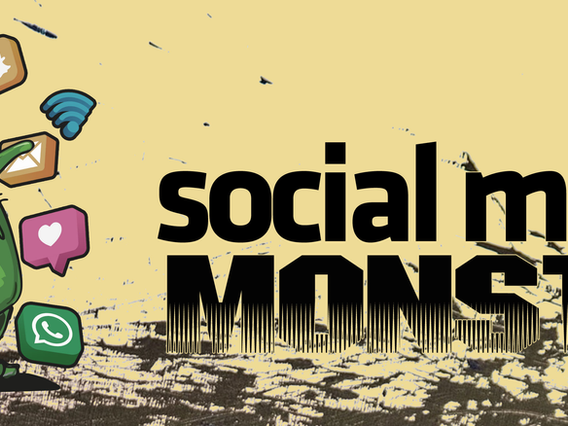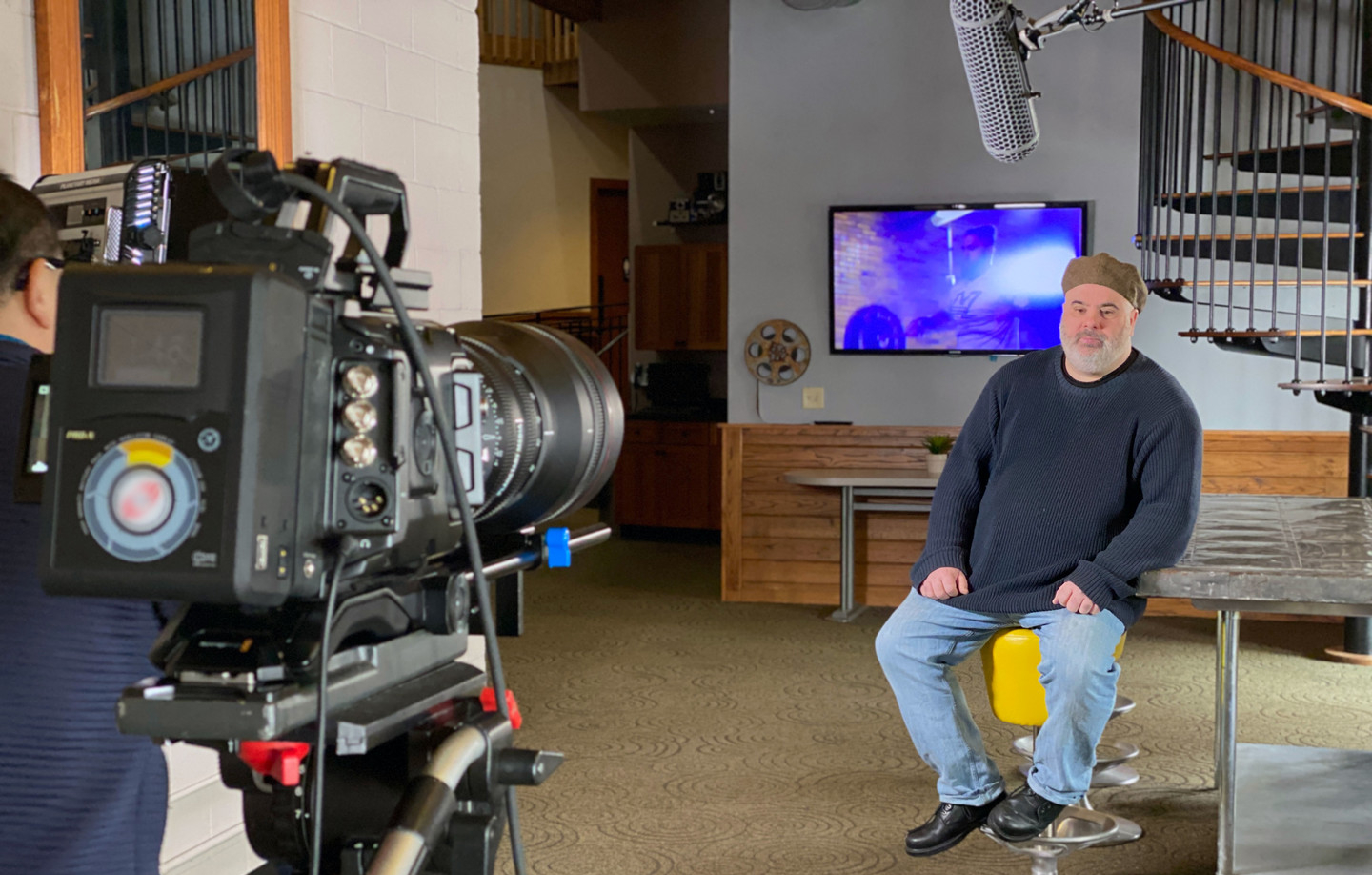Social Media Monster (2021) and the Dangers of the Internet

If you’re like me, you are a frequent surfer of the web (is that what kids still call it?) and you’ve also probably received your fair share of hateful messages. And even if you aren’t an avid user of social media, then you’ve still likely received some unsavory comments from those who disagree with you. But what happens when hateful messages evolve into something far more sinister? What if the person behind the keyboard goes a bit too far in an attempt to prove themselves right? Emmy-nominated filmmaker Peter John Ross’s newest documentary Social Media Monster addresses just that.
The sleepy town of St. Joseph, Missouri is set ablaze when a self-proclaimed filmmaker, activist, and journalist named Matthew Berdyck propelled himself into the public eye. What did he rise to infamy for? Filming a confrontation involving himself and three other men at an IHOP over not helping prevent an alleged assault in the parking lot. The situation becomes so heated that police were called to quell the dispute. After the altercation, which left Berdyck in a foul mood, he tries to expose the corruption of the local government and police. Berdyck begins harassing various others in the community (including City Councilman Brian Myers, a local band and even Peter John Ross himself). However, Berdyck takes it even one step further when he threatens to blow up a nearby nuclear power plant, which warrants an FBI investigation.

Before I get started with the actual review, I’d like to go over what the term “internet troll” means. An internet troll is someone who posts hateful comments or messages on social media (be it their own or others’) in order to garner attention, regardless of how little it may be. While many reading this may laugh this off as the least worrisome concerns we should be faced with, I beg you to reconsider. In our world of growing reliance on the internet, this is one of the most relevant issues we should address. The internet and social media provides everyone with a voice, even those who are a danger to themselves and others. And oftentimes, those people take things multiple steps too far. From tasteless pranks, to dangerous publicity stunts and even acts of terrorism, the internet is unfortunately a home to a whole host of horrible entities. And when you open that can of worms, you must be prepared for the worst to happen.
Matthew Berdyck is painted as a quasi-Travis Bickle from Martin Scorsese’s film Taxi Driver. Much like Bickle, Berdyck is portrayed as a troubled man who is disenfranchised with society and tries to be something bigger than he actually is. He goes out of his way to get into pointless fights with others which could’ve been wholeheartedly avoided. When he’s on the losing end, he paints himself as a victim all while slandering his opponents. Despite all this, he still views himself as a paragon of justice against the corruption of the local government. A core example of this presented in the documentary is his online self-published news journal, The Daily Independent. Almost all of the written pieces are either hit pieces against those who disagree with him (on a major or minor level) or purely exist to inflate his already massive ego.

Going off on this tangent, Berdyck himself even is seen on video saying that he views himself as two people: Matt (his “true” self) and Matthew Berdyck (the exposer of corruption). This goes on to even further highlight his dissonance from reality. Plenty of people interviewed in the documentary also highlight Berdyck history of lies, from being gay and even being disabled. Why did he lie about being disabled? So that he can receive social security benefits to finance his lifestyle. But even with social security benefits, it still isn’t enough to explain his abundant financial resources. Which brings many to ask: where did he get his funding from? And the answer? Leveraging a former employee at Facebook. And while said employee doesn’t work with either Berdyck or Facebook today (and has even apologized for any harm done to others), it goes to show what kind of a person Berdyck truly is.
Now, I don’t want to make this review look like a hit piece against Matthew Berdyck, as everyone does have their side of the story. Without proper evidence, it’s all a bunch of “he-said, she said.” Which is why I did some research on the whole matter. He did send threatening Facebook messages to Brian Myers in addition to plenty of others. And these messages aren’t short either, they’re full paragraphs of texts fired off consecutively. And if you thought that was bad enough, it gets even worse. Remember how I mentioned that Berdyck caused a scene at an IHOP and that he claimed he was gay? Well, these statements are fully backed by police reports that highlight what really happened at the situation at hand. In the report, Berdyck was highlighted as the aggressor who filmed three men without their consent and was the one hurling around foul language and threats of exposing them (police included) to social media. He even brags about his supposed wealth (i.e.= driving a $50,000 BMW) and status as a world-renowned filmmaker. And he goes even further to not only fan the flames of war against the police, but also the entire government of St. Joseph. And all over what? To prove he was right?

With how abundant our usage of the internet is, we often overlook the darker side of the web. Despite most seeing internet trolls as immature, yet largely harmless attention-seekers, the few that are truly harmful scream the loudest. We still need to be mindful of the dangers that lurk just beneath the thin veil of anonymity on the web. And Peter John Ross’s Social Media Monster highlights just how far a person can go and how low they can sink just to prove themselves right, by using the prime example of Matthew Berdyck.









Correction: Berdyck was on Social Security Disability supposedly for Bipolar Disorder for years
Replying to
Michael Li
Berdyck has told quite a few stories about why he was on disability, including “PTSD caused by my father abusing me”, “PTSD caused by Peter John Ross abusing me” and “messing myself completely up from wrapping my car around a telephone pole while out of my mind on drugs and alcohol”. I don’t know of anyone who has offered an informed opinion that he has ever been diagnosed with BiPolar disorder.
Matthew Berdyck is a cyberstalker plain and simple. I am one of his many victims.
Replying to
Jayne Hitchcock
I’m sorry you had to go through that abuse. Hopefully this can help shed some light on his actions